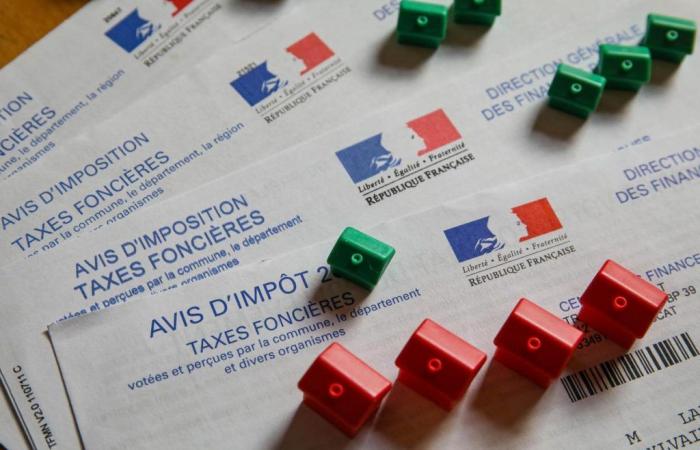En this month of October, the 19 million French households who own their homes, or around 38.6 million people and 57.4% of the population, must pay their property tax. With a mood that may resemble the autumn weather, but less heavy than in 2023. The increase was strong in 2023 with + 7.1%, it is divided by almost 50% this year, to 3.9%.
However, according to a note from the DGFIP (General Directorate of Public Finances), we observe an increase in the number of municipalities having voted to increase rates on built land in 2024 (16.7% of municipalities) compared to 2023 ( 14%). It is among the least populated municipalities (less than 10,000 inhabitants) that we find the highest proportion of tax increases on built land. It is important to specify that this fiscal criterion does not make it possible to judge the record, good or bad, of a mayor and his deputies.
As a reminder, since the abolition of the housing tax, owners are the only taxpayers to pay direct local tax via property tax. But those who own a second home or accommodation housing a tenant must also pay housing tax.
In the South West
What about in the South West? The analysis of 2,663 municipalities shows that 1,628 of them have renewed their rate for 2023. No increase therefore, but no decrease either. In 1,018 municipalities (cumulative municipal and intermunicipal rates), the average increase is 2.35%. Five municipalities exceed 15% increase, the most populous being that of Parempuyre, on the outskirts of Bordeaux. In this town of 9,136 inhabitants, the increase reached 21%. The record (+ 29.5%) is held by the Béarnais village of Labatut-Figuières (170 inhabitants).
Neighbors of Parempuyre, the inhabitants of Taillan-Médoc are luckier since their municipal team voted for a 3.4% reduction in the tax rate on built land. The Lot-et-Garonnais town of Cassignas (129 inhabitants) remains the champion of the decline (- 4.4%).
Between 2019 and 2024, eight municipalities in our region recorded an increase above 30%, with a peak of +68.7% for Grayssas, a commune in Lot-et-Garonne with 141 inhabitants, followed by two Béarnais villages. , Gurmençon (+ 58.8%) and Bidos (+ 46.7%). Four small municipalities in Gironde chose the opposite path during this same period with – 35.6% in Floudès or – 24.8% in Mérignas. The property tax rate has not changed since 2019 in a quarter of the municipalities in the South-West, including 160 in Charente-Maritime, 126 in Landes, 117 in Lot-et-Garonne and 91 in Gironde.
“With this situation, a poor owner pays property tax while a wealthy tenant no longer pays housing tax. »
As for the housing tax on second homes and vacant housing, only 1,461 municipalities, nationally, have applied an increase, a figure calculated by the DGFIP. And there are only 137 of them in the region to use this tax lever which of course only concerns owners. Some also do so at the maximum rate of 60%: Bordeaux, Bègles, Bayonne, Anglet (64), or Royan (17).
“Judged by our voters”
Behind the aridity of these rates and these figures is a debate as political as it is budgetary on a breakdown in fiscal equality, summarized by the centrist mayor of Talence, Emmanuel Sallaberry, co-chairman of the finance committee at the Association of mayors of France. “With this situation, a poor owner pays property tax while a wealthy tenant no longer pays housing tax. »
Eight out of ten municipalities have not changed their tax rates, adds the elected official from Talença who, like his colleagues, refuses to be judged by Bercy (the Ministry of the Economy and Budget). “Our only judges are our voters. If they consider us to be bad managers, they have a report card to fire us. »
By abolishing the housing tax, the government committed to making up for the shortfall to the nearest euro. “But he does it on the basis of 2017,” laments Emmanuel Sallaberry. However, since 2017, many municipalities have experienced demographic growth and above all, we have suffered, since 2022, from high inflation which has had repercussions on our budgets. The State has made us more and more dependent on it by depriving us of fiscal levers. »
The budgetary perspective outlined by Prime Minister Michel Barnier risks further straining local authorities, led by municipalities. With the predictable repercussions on citizens, primarily taxpaying owners.






